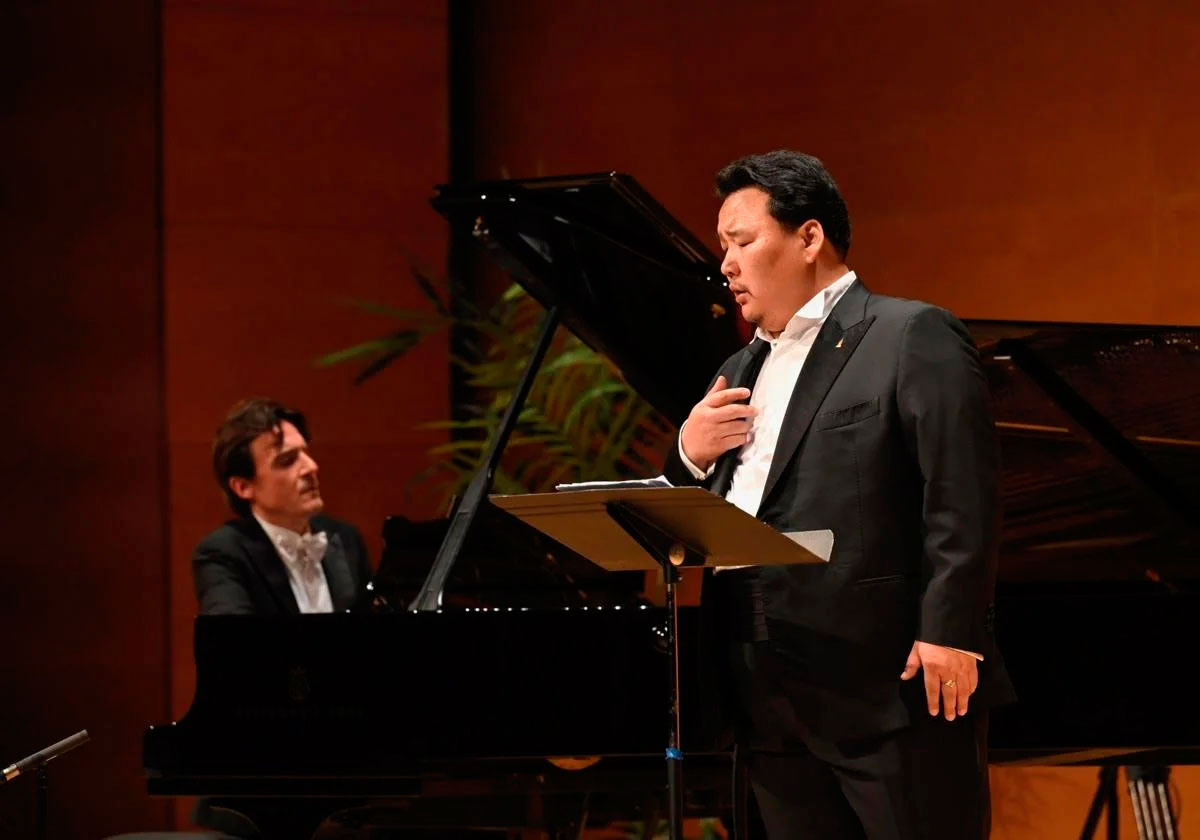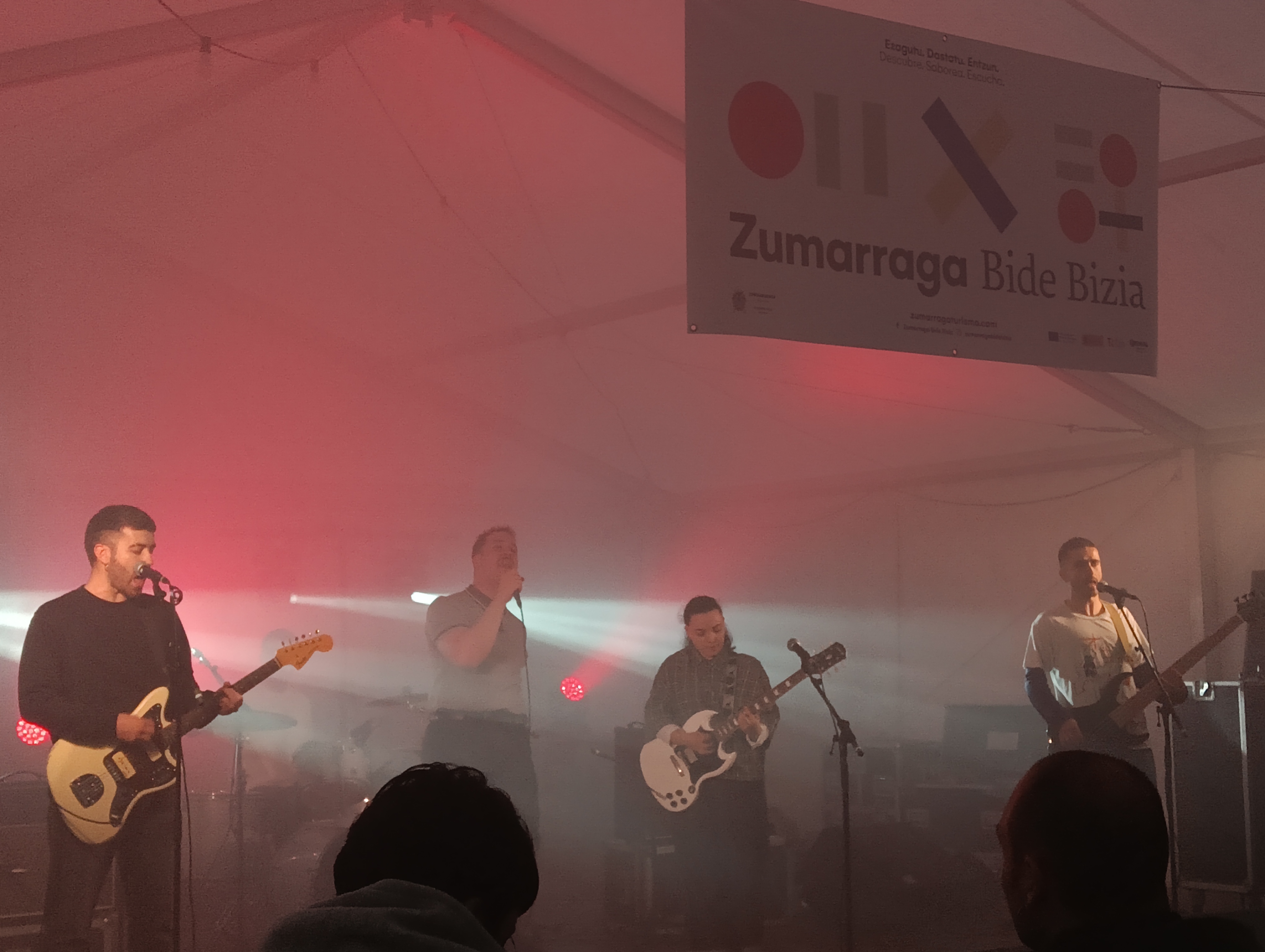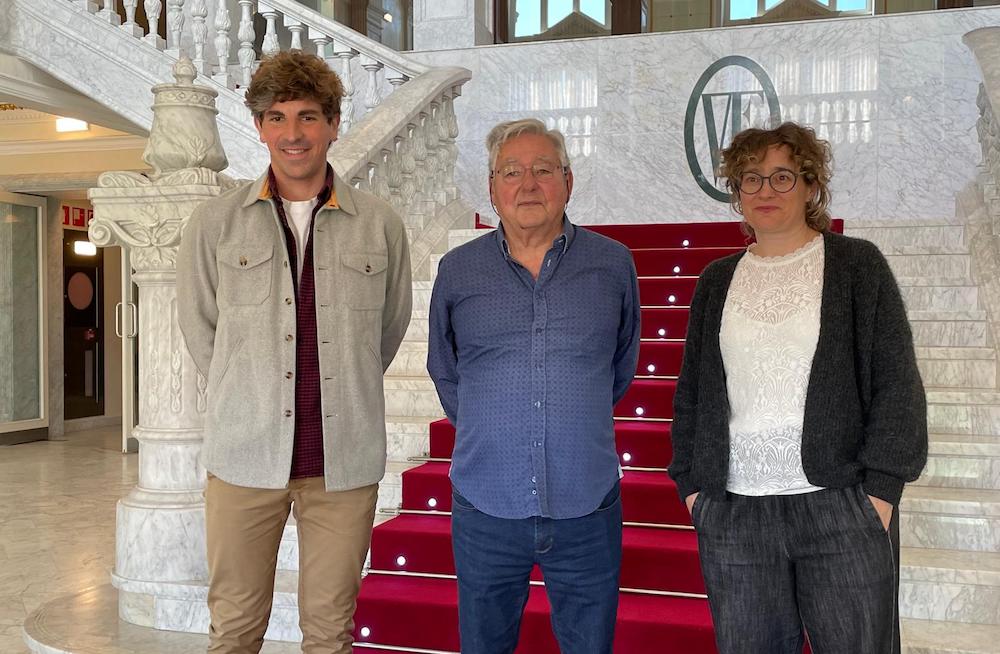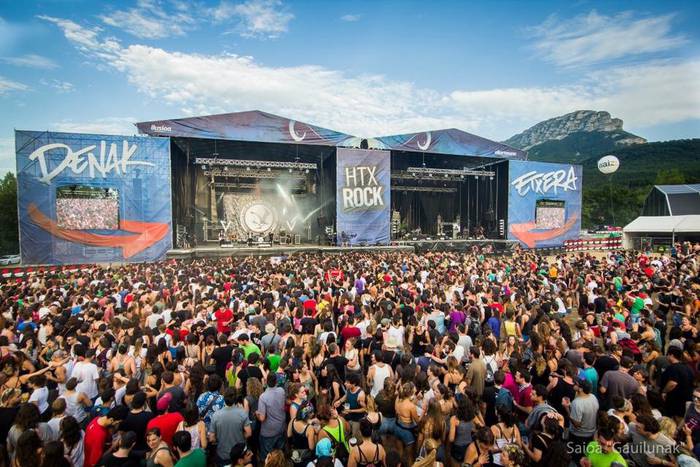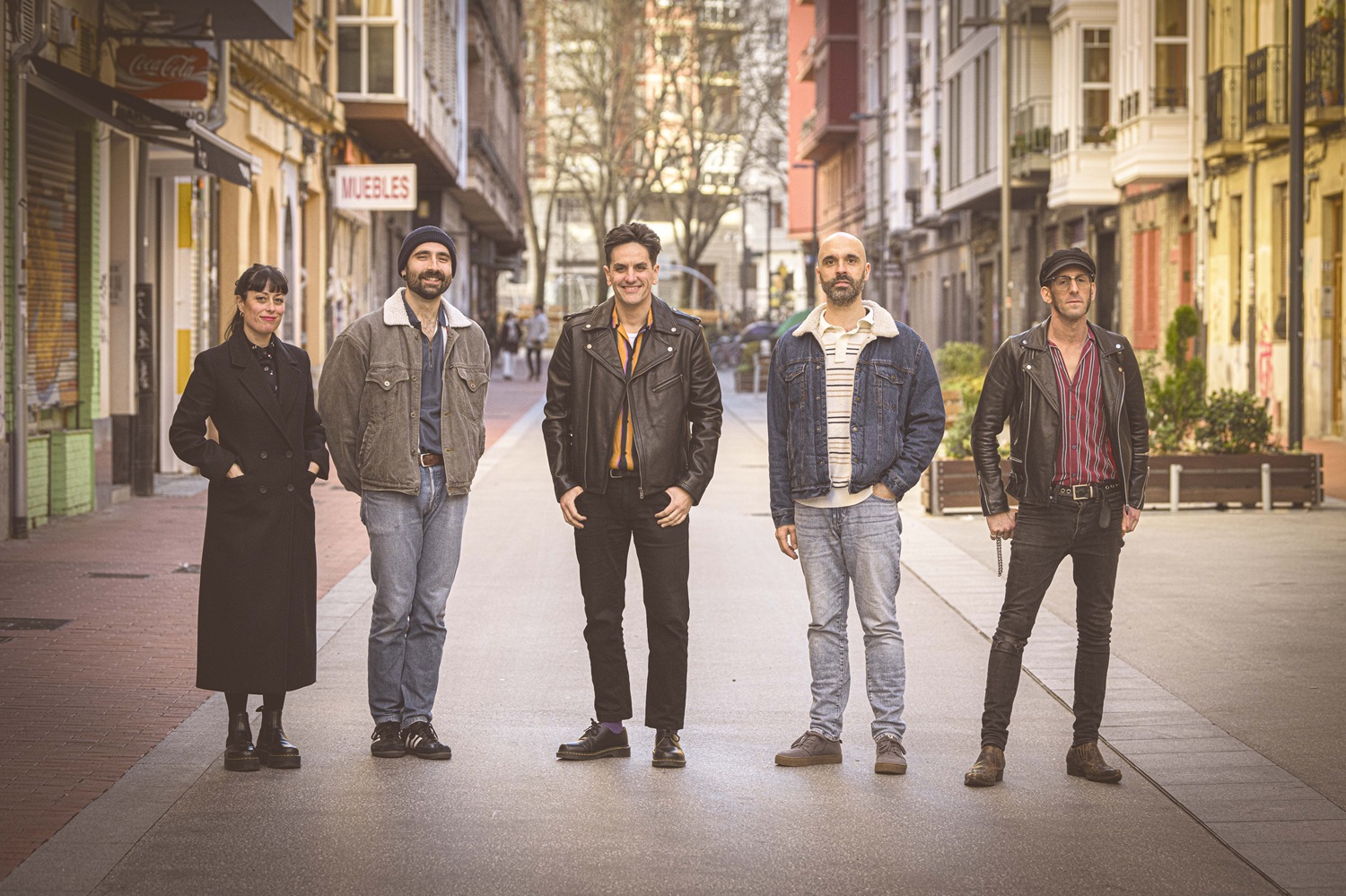"Grazing brings me more money than music"
- On Thursday it was Lambert's turn, who presented his first solo album, Fractura. He has been part of groups 667 and Seitan and, in addition to his solo career, he has been part of the Doktor Mephisto group. In summer, instead, he works as a pastor.

Hungry for theory, Ekhi Lambert (Irulegi, 1990) conducts and conducts several studies. In summer he works as a pastor in recent years, and throughout the year he is a musician. Accompanied by musicians Yoan Aroztegi and Miguel Etxeberri, he has presented his first solo album Hautsi, and is musical responsible for a dance show that Arrola, Garaztarrak and Elizondo are preparing — he writes adaptations and runs the orchestra.
He studied philosophy and then he was a pastor.
The connection is to do something more out of college. I did a year of philosophy and hesitated in summer work, walked interim and not willingly by force, nor did I have the teaching career goal for philosophy studies. So I thought about the pastor, I went to a school, in the Salon-de-Provence, and I started in the Alps three years as a pastor, in summer. Then I continued my Philosophy studies at a distance, until I was licensed.
Loving and following the pastor?
Yes, but I don't know why. I love him, but he's pretty weird, and I realize I'm eight or nine years old. I don't make any special strength except work. I'm batting a lot in music, but I do the seasons in the grazing, I do my job, and there... I pass the summers, quite happy.
Since you don't know why you like grazing, are you linked to a particular space?
No. I started three years in the Alps, traveled in the region of Provence during the winter and returned here. I lived in Berlin for a year, and as I entered, at 25, I wanted to be here. I took the music again — since I had left it — and so I wanted to do the grazing here. I arrange them with the elders for weekends, some days off, concerts and repetitions. The mountain of the Alps was magnificent, but hard enough to have social relationships and projects, knowing that the fast season of music is summer. Being here, I have a relationship with the music and the life below.
Is music another trade?
Yes, sometimes I would say it's a trade, because sometimes I've paid. For most of the jobs I do, I'm not paid. As far as work is concerned, I do the work that I like, and I see it, because at the end of the month or year I go well, if that is the case, I am enough. But it's true that the pastor brings me more money, at the moment, than music. It doesn't take me away that for me music is a trade.
With Doktor Mephistori, you propose something that didn't exist in the musical landscape here. Is that your way?
Surely it's not my way. And the blues rock music we play has been proposed by Niko Etxarte – otherwise – in Basque rock. It is true that we make versions in English, more in some soul, there are ponds… Niko Etxart is more rock, but I think here we have the habit of listening to that music. I remember in 10 years I saw a concert by Niko Etxart at the Irulegi parties; it was the first time I saw a rock concert, and I said, “That’s what I want to do.”
Are studies needed to compose music?
It is not necessary, I do not think so, but I have done so. I've been to the Baiona Conservatory and I've had writing courses. I was in traditional music with Philippe Ezkurra and I've taken the opportunity to host many theoretical courses, closer to the classic, and that I use a lot, for example [Doktor] Mephiston.
Has it been a clear choice to learn traditional music?
No, but I found someone: Philippe Ezkurra. A friend of mine talked to me about Baiona's traditional music series, which I don't go out musically to force. I've learned with Philippe how to compose what I bring and take things to the head. Tradition is at last taking your instrument -- or your voice -- and playing music as you are. From the beginning I felt that with Philippe. On the other hand, in order to enter school, the jury members had criteria that are not ours by force: I, for example, bear in mind that Mikel Laboa or Xabier Lete take the influences of those American folk songs protest, and I integrate them into tradition. When an occitan goes to court, he wants to see the flutes and the accordions. There's a rather closed point of view, which I call folk -- the gut in a traditional music aesthetic -- and another more popular one, like rock -- influencing right and left. No one has decided at one point in Euskal Herria that the aesthetic criteria are for tradition and impose on others; the things they steal were from right to left. With Philippe, we work on experimentation and how to assimilate things; how to make you pass on what you have in the casings, with their good and bad things.
You say you want to simplify things. Has it helped you do it alone?
Yes, because what is individual work? We don't work alone, a lot of people help me, but I've decided to do it on my behalf for accountability. All the responsibility for this project lies with me. If something isn't going well, it's up to me to fix things. When you're speaking on your behalf to others, you have to be simple because you have to be clear. Sometimes you have to know that you're lost. That leaves room for others, don't choke them.
What environment does the disk have?
From the point of view of influences, I've been playing a lot in video games, being in school, and I know that in music there are a lot of things coming out of there, even if it's not an electronic sound. From there I have many musical influences, although there are also influences of traditional music, pop music, blues music…
By words?
They're basically love songs that I wrote and told my friend. That is how things have gone. Maybe it's pretty weird to share the song for someone, but if I try to write a song for everyone, it doesn't make sense to me. Instead, when I talk particularly to someone, I say things. At the moment I have no choice but to write.
You've learned philosophy, music and now psychoanalysis. Do you have constant hunger with the studies?
Yes. It is also a way of getting drunk, certainly. In the books, I see a lot of stupidity, and it doesn't yield good results. But everyone needs their drugs, and my thing is that: theories, being a student... However, interesting things can happen.
Ziburuko Azokaren karietara abiatu zen Azokaroak aurrera jarraitzen du Ipar Euskal Herrian eta ostiral honetan poema errezitaldi musikatuaz gozatu ahal izango dute Euskal Urruñako Berttoli kultur elkartean, 19:00etan: Maddi Sarasua itsasuarrak idatzitako Biharraren hegietan... [+]
It's on
JOHN DEALER & COCONUTS
Ghost Highway, 2025
------------------------------------------------------
Adin batetik aurrera kontzertuak, diskoak eta kantuak bizkarrean eta burmuinean pilatuta, eta musika entzuteko denbora murritzagoa bilakatuta, taldeak bilatu... [+]
Esperoan
Hiuzz
Self-production (collective slow days), 2024
The group of groups that pass unnoticed is getting bigger, or at least bigger than ever. Although Hiuzz’s Esperoan is a few months old, I didn’t make... [+]
BRN + Neighborhood and Sain Mountain + Odei + Monsieur le crepe and Muxker
What: The harvest party.
When: May 2nd.
In which: In the Bilborock Room.
---------------------------------------------------------
The seeds sown need water, light and time to germinate. Nature has... [+]
Amartuvshin Enkhbat baritonoa
Pianoan: Stefano Salvatori.
Antolatzailea: OLBE.
Zer: Verdi, Mascagni, Leoncavallo eta Giordanoren operen ariak.
Non: Bilboko Euskalduna Jauregian.
Noiz: martxoaren 29an.
Aramu + AimarZ
When: April 26.
In which: The Zumarraga Open Field.
---------------------------------------------------------
The website of the City Council says: "The tourist brand Viva Viva and the festival of the same name are designed to show the world the soul of... [+]
Transparent Beings
When: April 20th.
In which: In the Plaza of the Castle of Pamplona.
-----------------------------------------------
The concert is only half an hour away in the Plaza del Castillo de Pamplona; but it is still half empty, because it is raining. Whether... [+]
Obduction of Amenaza / Zirt Zart (Split-ep)
2024
---------------------------------------------------
The musical panorama is gigantic, impassable. Among them there are a few large groups that absorb all the foci; many others that are dedicated to the pursuit of it, and... [+]



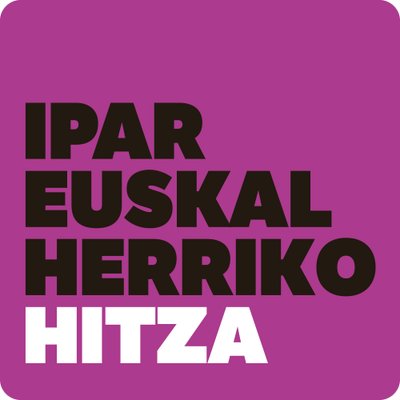






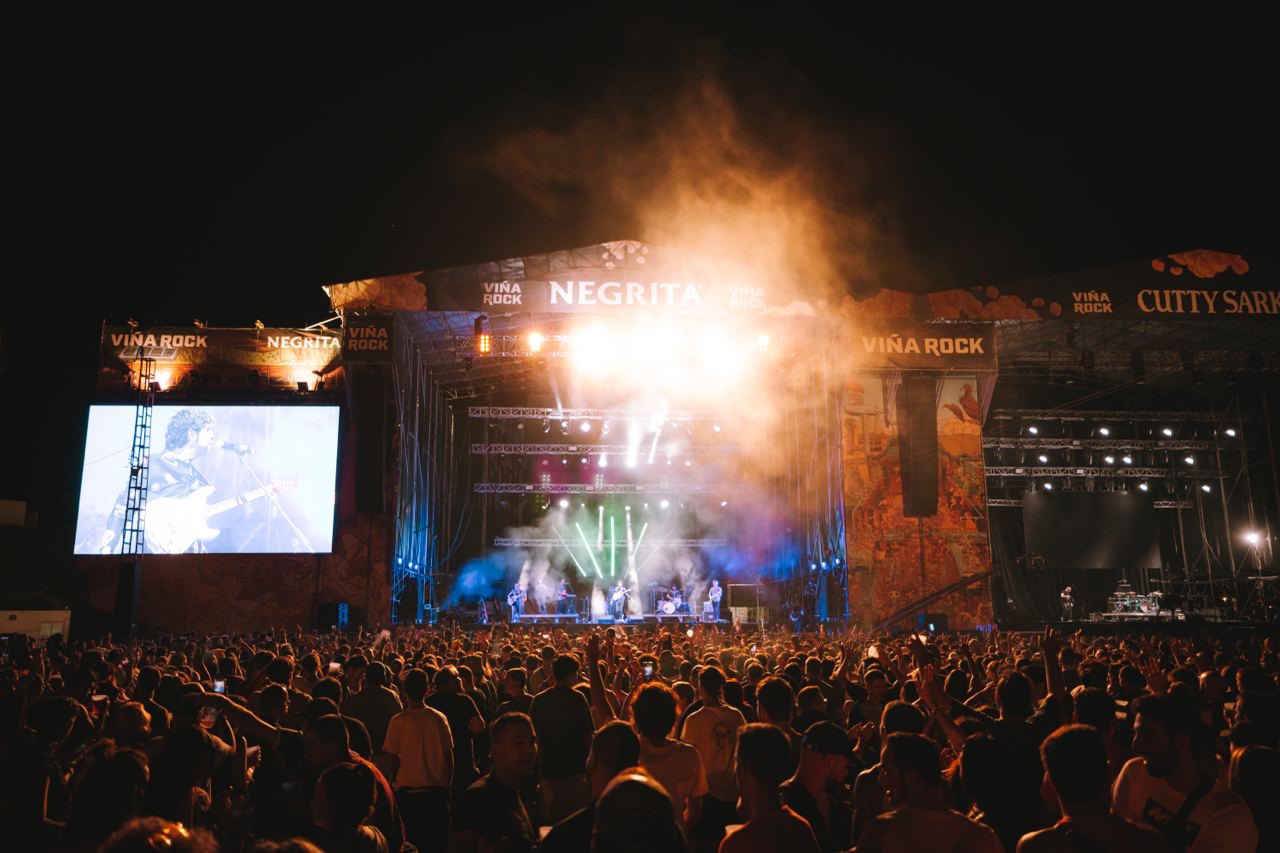
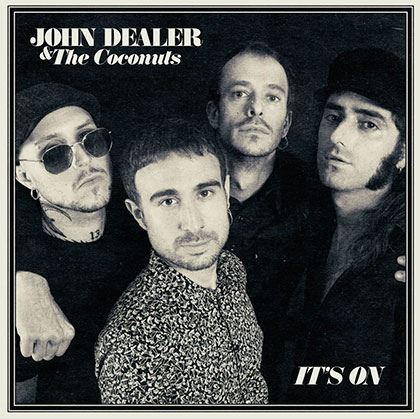

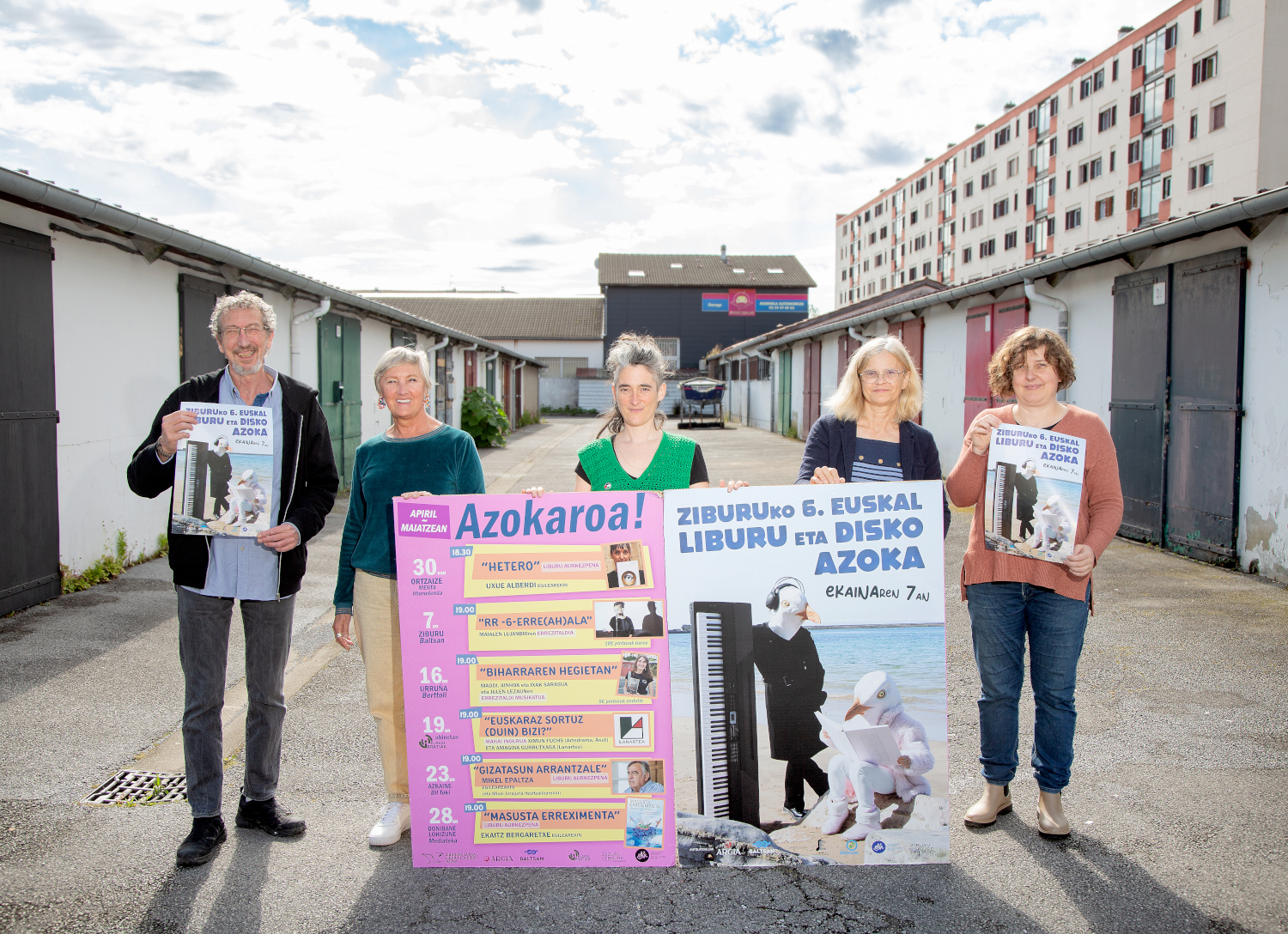

.jpg)

